Mastering buttermilk brined lamb
The technique of buttermilk brining transforms a traditionally robust cut of meat like leg of lamb into an exceptionally tender and flavorful dish. This recipe features a bone-in free-range leg of lamb soaked overnight in a rich marinade of buttermilk infused with fragrant herbs and toasted spices. The acidity of buttermilk gently breaks down muscle fibers, ensuring the meat becomes succulent while imparting subtle tanginess that balances perfectly with aromatic rosemary, oregano, dill, and lemon zest.
This buttermilk brined lamb recipe is a smart choice for home cooks looking to achieve gourmet-level tenderness without complex steps. The marinating process is straightforward—simply combine the marinade ingredients, massage the lamb, and refrigerate overnight. Roasting the meat slowly at a moderate temperature preserves juiciness and allows the crust to develop a golden-brown color without drying out. Side accompaniments like pan-fried leeks add freshness and texture.
Health-conscious cooks will appreciate that this method avoids excessive salt and heavy seasoning, relying instead on natural herbs and the tenderizing power of buttermilk. The lamb’s bone-in cut encourages deeper flavor penetration and adds richness during roasting. This dish pairs beautifully with medium-bodied red wines like Pinot Noir, creating a complete dining experience that emphasizes both simplicity and elegance.
Jump To
- 1. Mastering buttermilk brined lamb
- 2. Benefits and Advantages of buttermilk brined lamb
- 3. Essential Ingredients for buttermilk brined lamb
- 4. Dietary Substitutions to Customize Your buttermilk brined lamb
- 5. How to Prepare the Perfect buttermilk brined lamb: Step-by-Step Guide
- 6. Mastering buttermilk brined lamb: Advanced Tips and Variations
- 7. How to Store buttermilk brined lamb: Best Practices
- 8. Nutritional Value of buttermilk brined lamb
- 9. FAQs: Frequently Asked Questions About buttermilk brined lamb
- 10. Savory Buttermilk-Soaked Lamb Shoulder with Mustard Seeds and Spicy Harissa Recipe
Benefits and Advantages of buttermilk brined lamb
Tenderization and Flavor Development
Buttermilk is an excellent marinade base for lamb because its natural acidity gently breaks down tough proteins in the meat, resulting in enhanced tenderness. The overnight brining ensures thorough penetration, which improves both texture and flavor. The addition of aromatic herbs such as rosemary, oregano, and dill, combined with toasted coriander, cumin, and fennel seeds, contributes complex layers of fragrance and taste that complement the lamb’s natural richness.
Simplicity and Convenience
This recipe shines due to its simplicity: preparing the marinade and allowing the meat to rest overnight means active cooking time is minimal. This slow cooking approach reduces the risk of overcooking or drying out the lamb, making it perfect for home cooks who want impressive results with less hands-on effort.
Health and Nutritional Advantages
By using buttermilk instead of salt-heavy brines or fatty sauces, this method controls sodium intake and avoids unnecessary calories. Buttermilk’s probiotics and calcium add nutritional value, and roasting the lamb with minimal added fat helps keep the dish balanced. The use of fresh herbs brings antioxidants and anti-inflammatory benefits, complementing the protein-packed lamb.
Versatility
While traditionally cooked in the oven, this buttermilk brined lamb can also be grilled after allowing it to come to room temperature, which helps in even cooking. It’s an excellent recipe for special dinners or holiday meals, delivering consistent, succulent results.
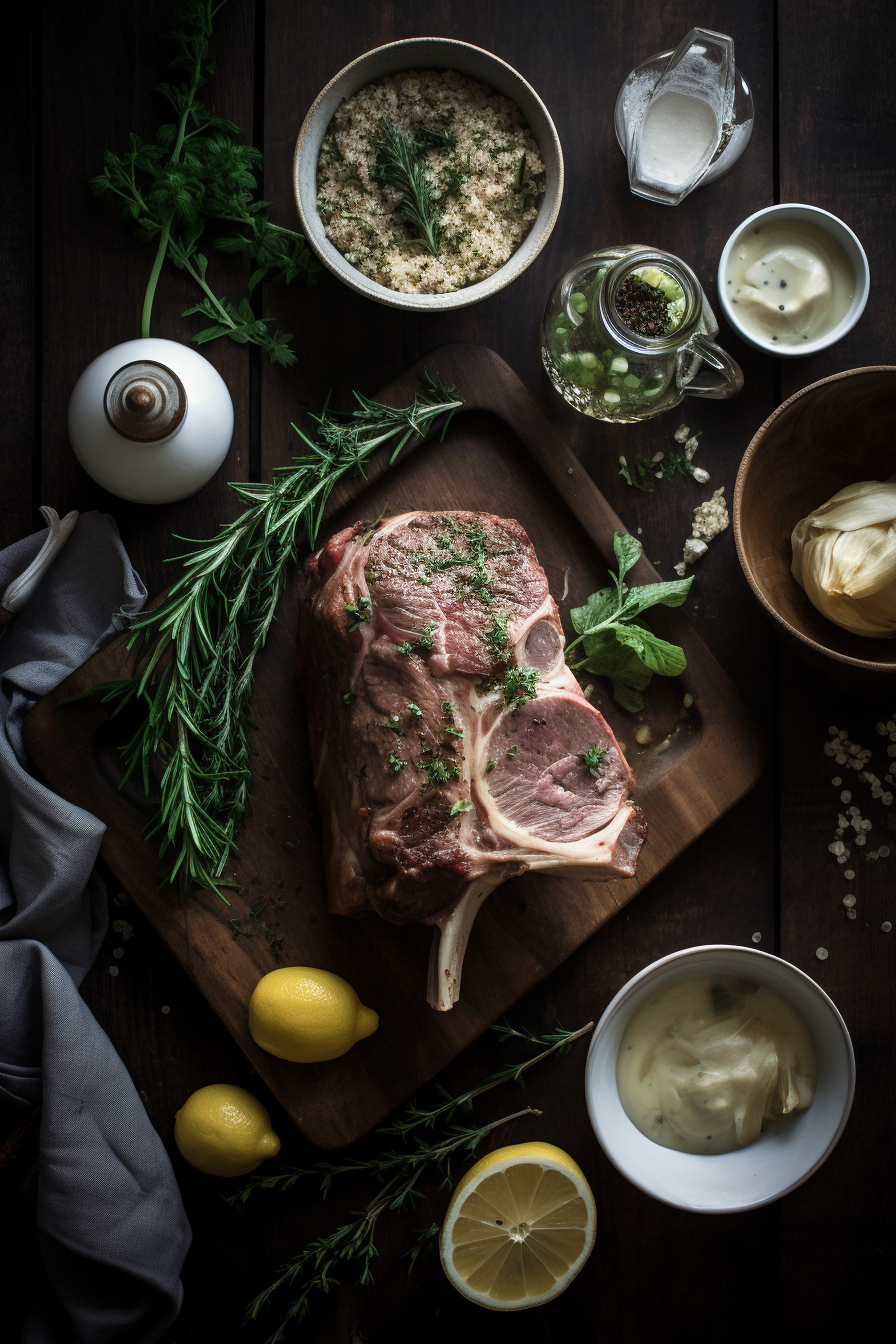
Essential Ingredients for buttermilk brined lamb
Use the following precise ingredients to create the flavorful buttermilk marinade and roast the lamb perfectly:
- 1 liter (2 bottles of 500 ml) buttermilk – Tenderizes and flavors the meat.
- 2 heads of garlic, peeled and halved – Adds pungent aroma and depth.
- 15 grams oregano – Provides an earthy, herbaceous note.
- 15 grams dill – Adds subtle sweetness and freshness.
- 30 grams rosemary – Imparts piney, woodsy aroma ideal for lamb.
- 1 tablespoon toasted and crushed coriander seeds – Adds warm, citrus-like spice.
- 2 teaspoons toasted and crushed cumin seeds – Lends earthiness and slight heat.
- 1 teaspoon toasted and crushed fennel seeds – Gives mild sweetness and licorice undertones.
- Zest of 3 lemons – Brightens flavors with citrus lift.
- Sea salt and freshly ground black pepper – To taste, for seasoning.
- 3.5 kilograms bone-in free-range leg of lamb – Primary protein, rich and flavorful.
- 3 tablespoons olive oil – Used to drizzle and aid roasting.
- 2 onions, quartered – Aromatics to roast alongside lamb.
- Half a head of garlic – Amplifies garlic flavor in the pan.
- 4 baby leeks, sliced – For sautéing to serve alongside.
- 100 grams butter – Used to pan-fry leeks, enhancing richness.
Dietary Substitutions to Customize Your buttermilk brined lamb
To tailor this buttermilk brined lamb recipe to specific dietary needs or available ingredients, consider the following substitutions and alternatives:
Dairy-Free Options
- Buttermilk substitute: Use coconut milk mixed with 1 tablespoon lemon juice or apple cider vinegar per cup, allowing it to curdle slightly, to recreate acidity and creaminess, suitable for dairy-free diets.
- Butter substitute: Replace butter with olive oil or a dairy-free margarine for pan-frying the leeks.
Herb and Spice Variations
- If fresh herbs like dill are unavailable, try substituting with equivalent dried herbs at about one-third the fresh quantity—10 grams dried dill for 30 grams fresh, for example.
- Swap coriander, cumin, or fennel seeds with other complementary spices such as smoked paprika or allspice for a different aromatic profile, keeping in mind this will subtly alter flavor.
Lower Sodium Adjustments
- Reduce added sea salt in the marinade to control sodium intake. The buttermilk’s acidity and herb blend compensate for flavor.
- Use low-sodium or unsalted broth instead of onions if cooking method requires it.
Protein Alternatives
- While lamb is central to this recipe, the buttermilk marinade technique works well with other meats such as chicken thighs or pork shoulder for those avoiding red meat while maintaining tenderness benefits.
These substitutions offer flexibility while preserving the essence of buttermilk brined cooking. For further inspiration on seasoning lamb, see herbs and spices for lamb recipes, or learn more about buttermilk’s marinade role benefits of buttermilk in marinades.
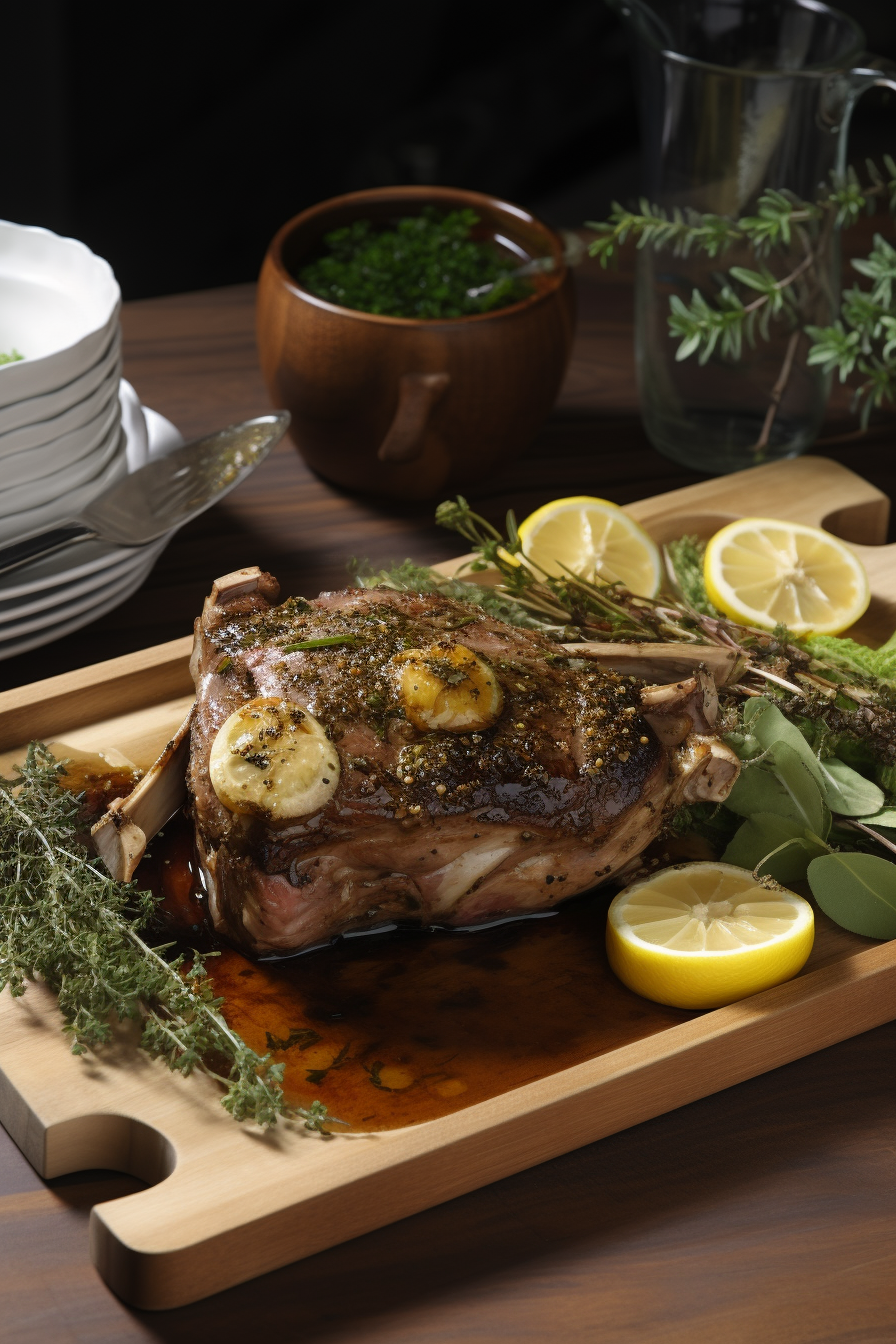
How to Prepare the Perfect buttermilk brined lamb: Step-by-Step Guide
Preparing a buttermilk brined lamb combines tenderizing marinade techniques with slow roasting to deliver juicy, flavorful meat. Follow these clear steps to make the perfect lamb roast:
- First Step: Mix all ingredients for the marinade in a large freezer bag or deep baking tray. This includes 1 liter of buttermilk, 2 heads of garlic (peeled and halved), 15 grams each of oregano and dill, 30 grams rosemary, 1 tablespoon toasted and crushed coriander seeds, 2 teaspoons toasted and crushed cumin seeds, 1 teaspoon toasted and crushed fennel seeds, zest of 3 lemons, sea salt, and freshly ground black pepper. Stir well to blend flavors.
- Second Step: Prepare the lamb by making shallow slashes into the fat layer, being careful not to cut deep into the meat. Place the 3.5-kilogram bone-in free-range leg of lamb in the marinade, massaging it to coat thoroughly.
- Third Step: Seal or cover, then refrigerate overnight or up to 24 hours. This allows the buttermilk’s acidity to tenderize the lamb while infusing flavor.
- Fourth Step: Preheat your oven to 180°C (325°F). Remove the lamb from the marinade and brush off excess buttermilk to prevent burning.
- Fifth Step: Place the lamb in a roasting pan. Drizzle with 3 tablespoons of olive oil. Add quartered onions and half a head of garlic into the pan for added aroma and moisture.
- Sixth Step: Cover the roasting pan with two layers of foil and roast for 1 hour 45 minutes, allowing gentle cooking for tender meat.
- Seventh Step: Remove the foil; continue roasting for 20 to 30 minutes more depending on your preferred doneness and a golden crust forming.
- Eighth Step: Remove the lamb from the oven and let it rest for at least 30 minutes to allow the juices to redistribute for juicy meat.
- Ninth Step: Meanwhile, pan-fry 4 sliced baby leeks in 100 grams of butter until soft and lightly browned. Serve these alongside the lamb for a flavorful complement.
This step-by-step approach guarantees a tender, flavorful leg of lamb perfect for special dinners or family meals.
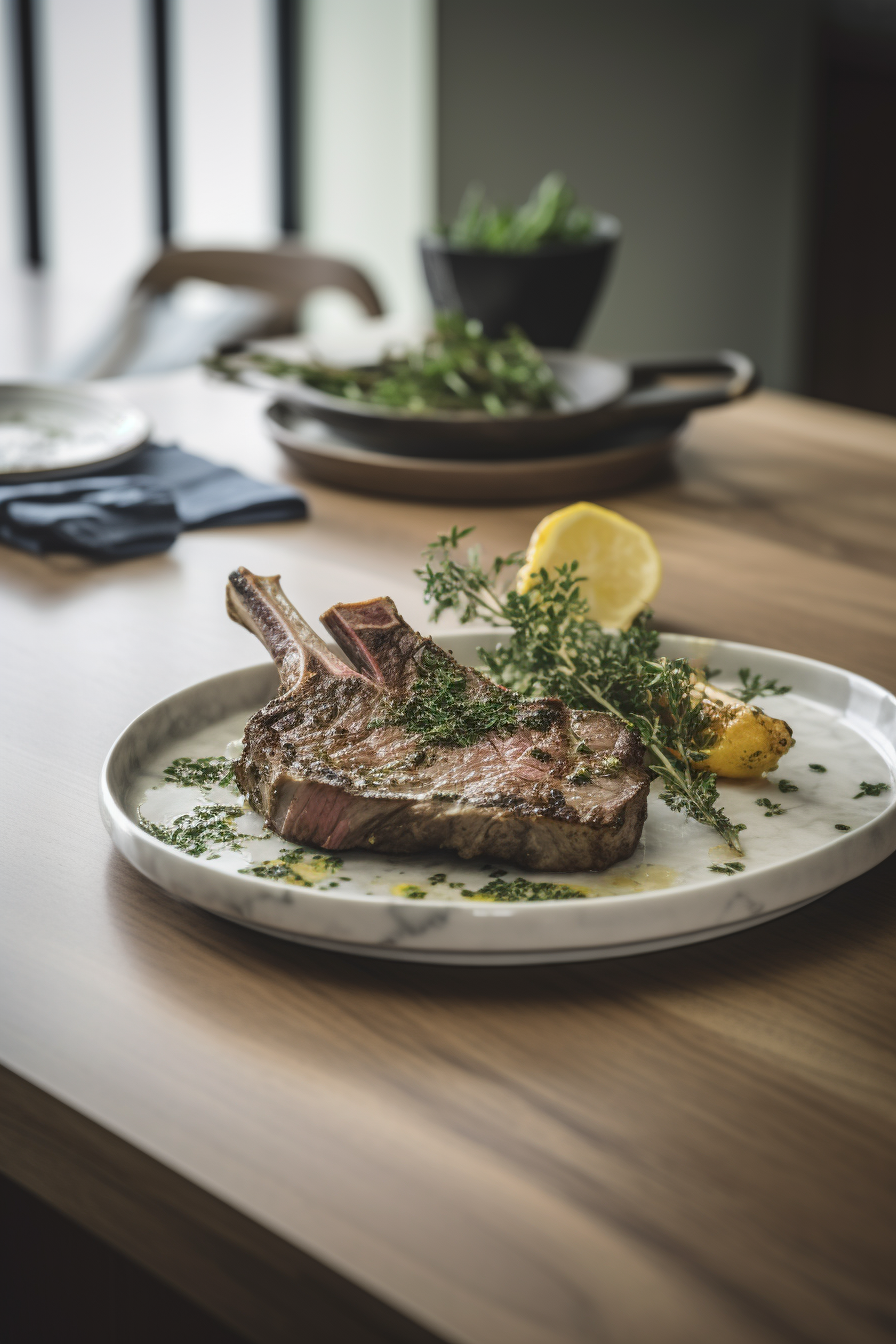
Mastering buttermilk brined lamb: Advanced Tips and Variations
To perfect your buttermilk brined lamb and experiment with variations, consider the following expert tips:
Tips for Success
- Marinate long enough: For optimal tenderness and flavor, brine the lamb for at least 8 hours, ideally overnight, but no more than 24 hours to avoid overly soft texture.
- Pat dry before roasting: Removing excess moisture from the lamb’s surface promotes better browning and crust development.
- Maintain oven temperature: Use a moderate 180°C (325°F) heat for even cooking without drying the meat.
- Rest the meat: Essential for juiciness, resting allows the fibers to reabsorb the juices, ensuring moist lamb slices.
Flavor Variations
| Variation | Description |
|---|---|
| Grilled Buttermilk Lamb | After marinating, remove the lamb an hour before grilling. Cook over medium heat to get smoky, charred notes retaining the buttermilk’s tenderness. |
| Herb Butter Finish | Spread herb-infused butter (rosemary, thyme, garlic) over the lamb before final roasting for a fragrant, glossy finish. |
| Different Spice Blends | Mix in additional spices like smoked paprika or sumac with the marinade seeds for a different aromatic profile (herbs and spices guide). |
Experiment with these tips to find your preferred lamb experience.
How to Store buttermilk brined lamb: Best Practices
Storing buttermilk brined lamb properly maintains flavor and safety:
Refrigeration
Store cooked lamb in airtight containers in the refrigerator for up to 4 days. Reheat gently at low temperature (about 160°C or 320°F) covered to retain moisture.
Freezing
Wrap leftover lamb tightly in plastic wrap and aluminum foil or place in a freezer-safe container. Freeze for up to 3 months. Thaw overnight in the fridge before reheating.
Reheating Tips
- Avoid microwaving which can dry out meat; instead, reheat in oven or covered skillet with a splash of broth.
- Slice lamb before reheating for quicker, more even warming.
Nutritional Value of buttermilk brined lamb
This buttermilk marinated lamb recipe offers balanced nutrition with rich protein content and beneficial fats:
| Nutrient | Amount per Serving (Approximate) | Benefits |
|---|---|---|
| Calories | 350-450 kcal | Provides energy and satisfies hunger. |
| Protein | 35-40 g | Supports muscle repair and maintenance. |
| Fat | 20-25 g | Contains healthy monounsaturated fats but keep portion moderate. |
| Calcium | 10-15% daily value | Contributed by buttermilk in the marinade, beneficial for bones. |
The buttermilk marinade adds tenderizing properties along with some nutrients (benefits of buttermilk in marinades), resulting in a dish that is both delicious and nourishing.
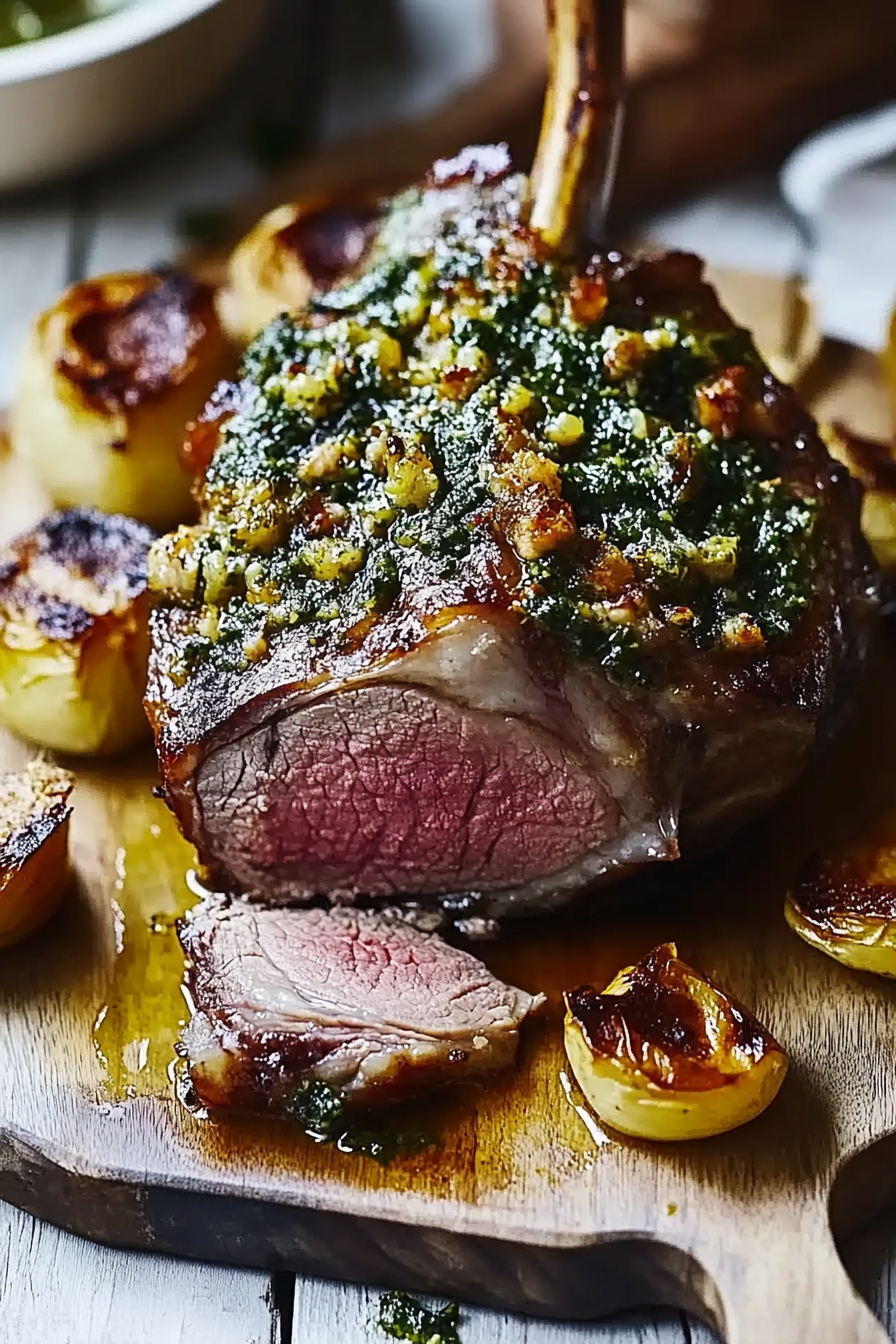
FAQs: Frequently Asked Questions About buttermilk brined lamb
How long should I marinate lamb in buttermilk?
For best results, marinate lamb between 8 to 24 hours. This timeframe allows the buttermilk to tenderize the meat without making it overly soft.
Can I use boneless lamb for this recipe?
Yes, boneless lamb leg or shoulder can be used, but cooking times may vary. Always check internal temperature and tenderness before serving.
What’s the ideal internal temperature for cooked lamb?
For medium-rare, aim for 130-135°F (54-57°C); for medium, 140-145°F (60-63°C). Rest the meat after cooking to allow temperature to rise slightly.
Are herbs necessary in the buttermilk marinade?
While optional, herbs like rosemary, oregano, and dill add aromatic notes that complement the lamb’s flavor beautifully.
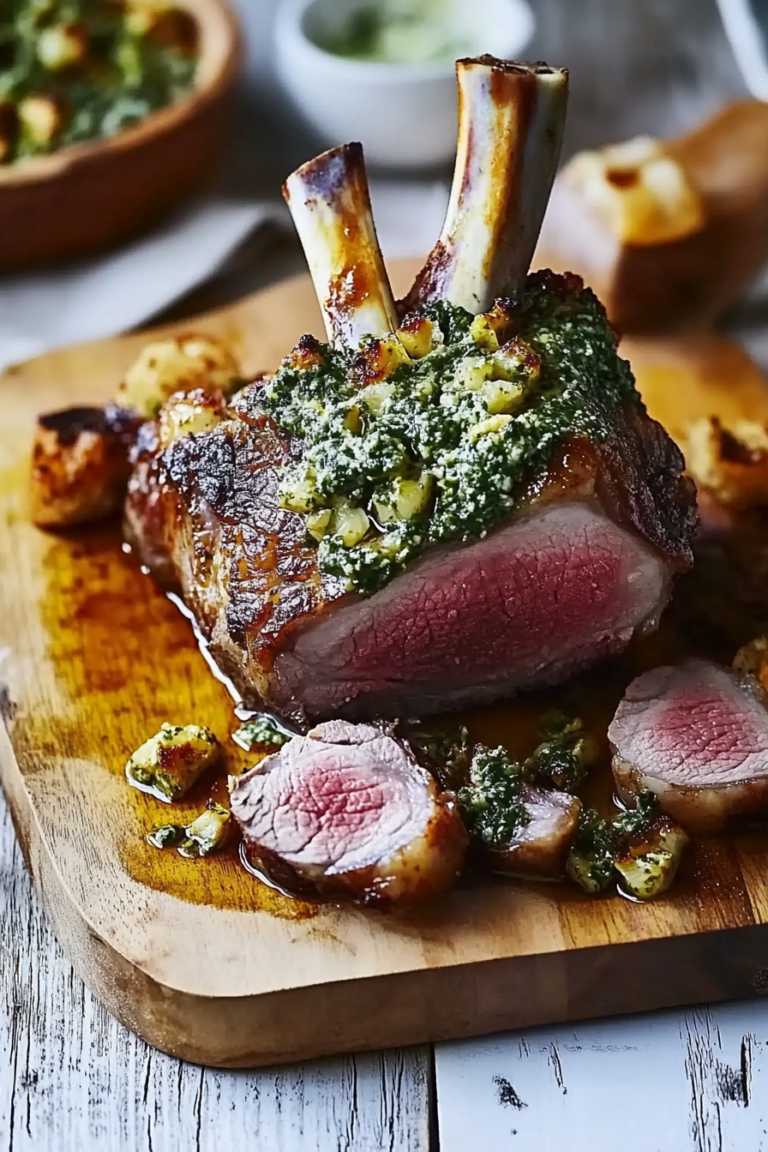
Savory Buttermilk-Soaked Lamb Shoulder with Mustard Seeds and Spicy Harissa Recipe
🥩 Enjoy the rich flavors of lamb marinated in buttermilk for a tender, juicy experience like no other.
🌿 Infused with aromatic herbs and spices, this dish promises a journey of taste that tantalizes the senses.
- Total Time: 35 hours, including marinating time
- Yield: Serves 8 to 10 1x
Ingredients
1 liter buttermilk
2 heads of garlic, peeled and halved
15 grams oregano
15 grams dill
30 grams rosemary
1 tablespoon toasted and crushed coriander seeds
2 teaspoons toasted and crushed cumin seeds
1 teaspoon toasted and crushed fennel seeds
Zest of 3 lemons
Sea salt and freshly ground black pepper, to taste
3.5 kilograms bone-in free-range leg of lamb
3 tablespoons olive oil
2 onions, quartered
Half a head of garlic
4 baby leeks, sliced
100 grams butter
Instructions
Combine all marinade ingredients in a large freezer bag or deep baking tray, mixing well.
Make shallow slashes on the lamb fat. Massage the marinade into the lamb, cover, and refrigerate overnight.
Preheat the oven to 180°C (325°F).
Remove the lamb from the marinade, brush off excess, and place in a roasting pan.
Drizzle with olive oil, add onions and garlic to the pan, cover with foil, and roast for 1 hour 45 minutes.
Remove foil and continue roasting for another 20 to 30 minutes, depending on desired doneness.
Let the lamb rest for at least 30 minutes before carving.
Pan-fry leeks in butter and serve alongside the lamb.
Notes
🧄 Marinating the lamb in buttermilk tenderizes the meat and enhances the flavor.
🌡️ Ensure the lamb is patted dry before cooking to help seasonings adhere and promote browning.
🔪 Rest the lamb after cooking to allow juices to redistribute for a juicier dish.
- Prep Time: 30 minutes
- Marinating Time: 8 to 24 hours
- Cook Time: 2.5 hours
- Category: Main Course
- Method: Roasting
- Cuisine: Mediterranean
- Diet: Gluten-Free
Nutrition
- Serving Size: About 350g per person
- Calories: 570
- Sugar: 3g
- Sodium: 720mg
- Fat: 45g
- Saturated Fat: 17g
- Unsaturated Fat: 25g
- Trans Fat: 0g
- Carbohydrates: 5g
- Fiber: 1g
- Protein: 35g
- Cholesterol: 170mg







